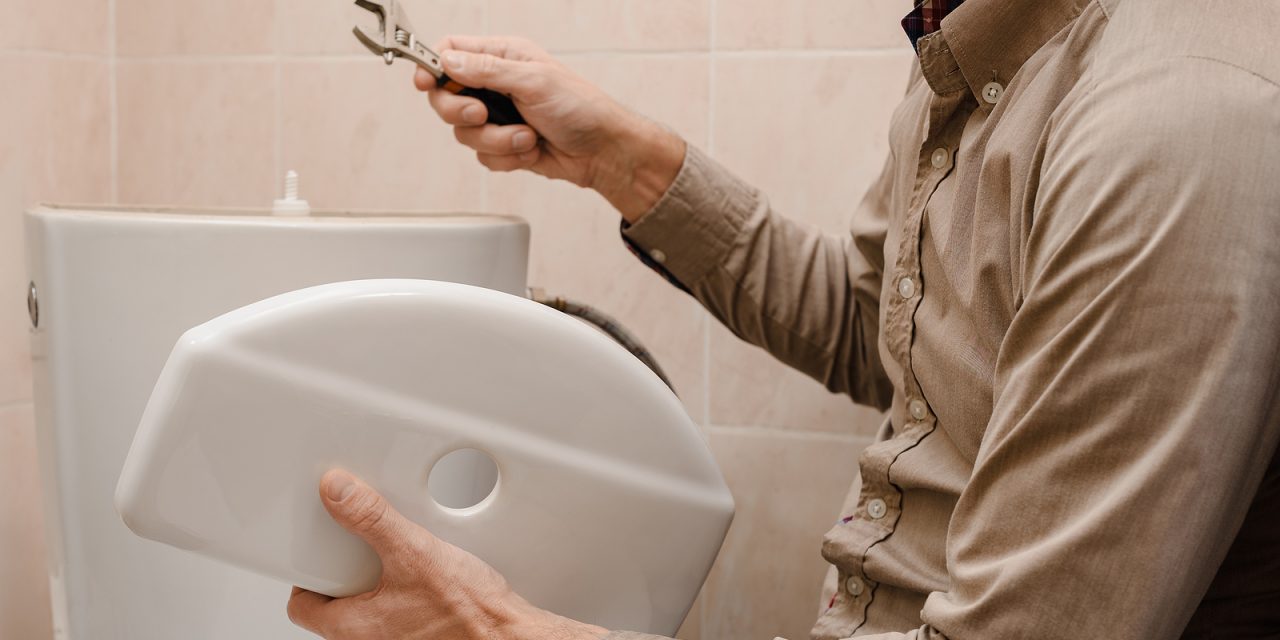I consider myself somewhat of a handyman. In high school, I took five years of shop—one of the few classes in which I excelled. Growing up around a farm, I learned to do some carpentry and mechanical work. Besides that, I am a proud owner of the Reader’s Digest “Complete Do-It-Yourself Manual “, 1973 Edition – the gold standard on how to repair everything in your home.
I am familiar with the basic rules of pliers and wrenches, so when our commode began to show signs of age, I told my wife, “No problem! I will take care of it.” The flapper had worn out, causing the toilet to run in short bursts to keep the tank filled with water.
Since this little difficulty did not bother me as much as it did my wife, repairing it was not a priority. But after several subtle hints, I realized that if I wanted a warm meal and a bed to sleep in, I had better get to work.
At the hardware store, the staff informed me that this style of toilet flapper was no longer available, so I would have to install a replacement kit. To accomplish this, I had to take the entire tank off the back of the toilet. Again, no problem. I have performed this feat many times.
The only way to get it done is to hug the toilet. Lying on my back, I slid myself carefully underneath the fixture, so I could loosen the two nuts holding the tank to the bowl. These nuts have been corroded since the beginning of time, so this was not an easy task.
With every twist of the wrench, the bolts disintegrated a little more, sending a shower of rust into my eyes. Grateful that I could still exercise my sense of touch, I finally loosened one of the nuts, and the remaining water in the tank came gushing out. (At least it washed the rust from my eyes.) After an hour of wallowing around in rusty water, I managed to get the tank off, install the new kit, and bolt everything back together.
I stood there for a few minutes, admiring my handiwork. Next, I turned on the water. Much to my surprise, a small leak had sprung at the point where the tank fit the seat.
I went back to the hardware store and told them my problem. It turned out that I needed to replace another part to make the one that I had already replaced work properly. During my first visit, they had somehow failed to mention that.
Slightly frustrated, I went back home with the other part and began the entire process once more. A few hours and several more pounds of rust, I turned the water on for the second time and . . . the leak was even bigger. The more I worked on it, the worse it got. After three tries, I swallowed my pride, mopped up the floor and called a plumber.
Nothing is more demeaning to a man than admitting that he can’t fix it. It doesn’t help to have your wife standing in the doorway, repeating every few minutes, “Why don’t you call a plumber?” Having a plumber come to your house and park his truck in plain view of all the neighbors is like admitting to the world that you have failed.
As the plumber worked on the toilet—for a grand total of fifteen minutes—I asked if he could explain what I had done wrong. These were his exact words: “Like my daddy told me, everyone has something in life that they are NOT supposed to do. And sir, yours is plumbing!”
Not everyone is good at everything. Sometimes, we need to lay down our pride and ask for help—whether with plumbing, marriage or raising our children. I am asking God to help me do what I am supposed to do and learn to leave the rest—up to the plumbers!
When it comes to parenting, you cannot do everything. That is why God created the extended family. In our modern world, family members may not be able or available to assist us. We need to have the humility to ask other caring individuals to step in and provide the help we need.
Dear Father, please help me to understand my limitations. I cannot be everything in my child’s life. Help me to do what I do best, and then surround my children with other godly people. Provide for them a network of instructors that will help them “grow in wisdom and stature, and in favor with God and men” (Luke 2:52). Amen.






